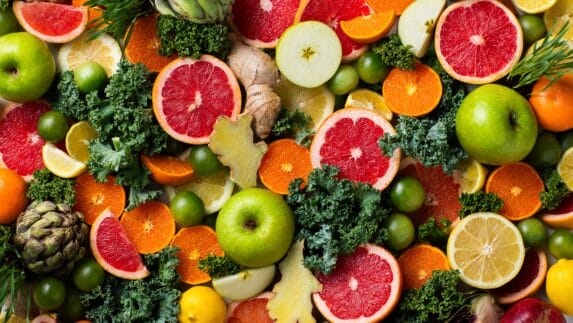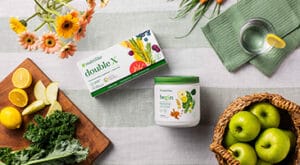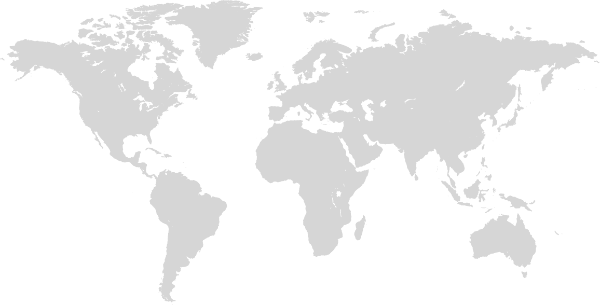More and more frequently, science is suggesting that people all over the world could live healthier longer if they would eat more vegetables and fruit. Yet, despite the evidence and interventions to increase consumption, three out of four adults worldwide still don’t get recommended amounts in their daily diets*.
Now, a long-time researcher on the connections between human health benefits and plant foods is advocating for better methods to understand why consumption remains so low and how to address the problem more effectively.
Keith Randolph, PhD, Amway Global Research & Development, presented his views on the issue in an article published by the United Nations System Standing Committee on Nutrition (UNSCN) in a recent issue of its newsletter, UNSCN News. The newsletter covers important developments in the field of international nutrition.
“Several key studies have identified dietary patterns featuring an abundance and variety of plant foods as a common characteristic in populations that experience low risk for chronic disease and exceptional healthy longevity,” said Randolph. “Increasing fruit and vegetable intake is a low-cost, low risk way to improve nutritional status.”
Randolph went on to explain just how plants can help improve one’s nutrition. “Plants contain natural chemicals, called phytonutrients, that help to protect them against infectious microbes and environmental stresses,” Randolph said. “Research now shows that phytonutrients from plant foods perform similar beneficial and protective functions in the human body. We believe they play a significant role in slowing aging, promoting health and reducing risk for chronic disease.”
Unfortunately, Randolph said, despite projects and interventions to increase fruit and vegetable intake, population-based assessments suggest that consumption still remains below the World Health Organization’s recommendation of 400 grams per day (five servings)—including the United States and European Union, where most studies on intake have focused.
Randolph is calling for more and better intake assessment particularly in developing nations, where factors that limit availability and intake of fresh vegetables and fruit are likely culturally unique. “There is an emergent need for better methods for assessment of dietary intake that are adaptable cross different cultural settings, so that the problem can be addressed more effectively,” he said.
About Amway
Amway is an $8.8 billion direct selling business based in Ada, Michigan, USA. Top-selling brands for Amway are Nutrilite™ vitamin, mineral and dietary supplements, Artistry™ skincare and color cosmetics, eSpring™ water treatment systems and XS™ energy drinks – all sold exclusively by Amway Business Owners. Global sales in 2016 made Amway the No. 1 direct selling business in the world, according to the 2017 Direct Selling News Global 100. The company’s annual sales figure includes revenue from direct selling operations and other business holdings. For company news, visit globalnews.amway.com.
*The Global Phytonutrient Report: A Global Snapshot of Fruit and Vegetable Intake and Availability, and Implications for Phytonutrient Intakes




